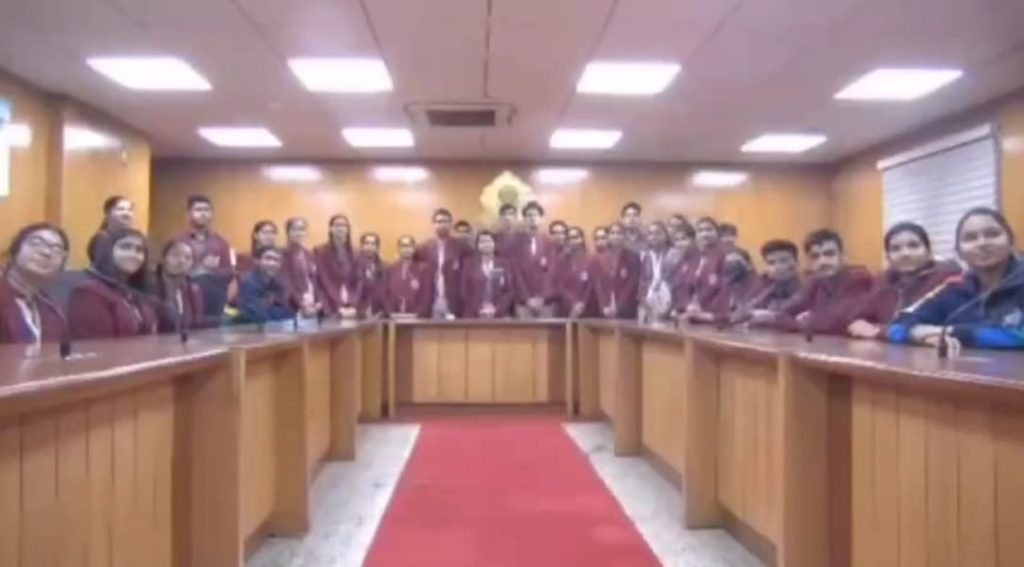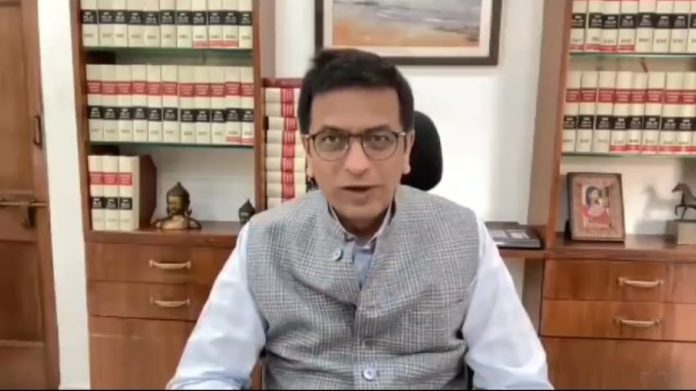Chief Justice of India D.Y. Chandrachud has said that one should never take a shortcut to success by doing wrong things.
Interacting with 31 visitors, including 29 students of DAV Centenary Public School at Paschim Enclave, New Delhi through video-conferencing, the CJI explained to them the responsibilities of the Apex Court, the kind of cases they dealt with and the responsibilities of the Court as being the highest Constitutional authority in the country.
This is the 141st Guided Tour of the Supreme Court organised for the school students.
The students, who visited the top court of the country last week, had requested to interact with the CJI, who graciously accepted the request and directed the Registry to connect them through video-conferencing. Immediately, the interactive session was held through VC.

To a student who sought tips to become a judge, and possibly the CJI one day, Justice Chandrachud said, “I am now at the final tip of my career, but this has been preceded by 20 years of hard work as a lawyer, before that hard work as a student.
“If you want to become a judge, you must always do right things. Never take the shortcut to success by doing wrong things,” he added.
Calling the students torchbearers of the nation, he said whatever they studied today will become the groundwork of how they take the nation forward tomorrow.
Speaking about the right to speak, the CJI said it also included the right not to speak. He said the police cannot compel an accused to make a confession. “You cannot read that evidence, unless made before a Magistrate,” he added.
He said Article 21 was the most important fundamental provision of the Constitution because it recognised the dignity of life. Justice Chandrachud, while delving on death sentence, noted that any law taking away the right to life, has to be a fair law in terms of its both its procedure and substance.
The CJI told the students that the Supreme Court heard appeals from all High Courts of the country. It dealt with a variety of cases, ranging from disputes between two states on river water sharing, disputes related to the Central government and state governments, or between different departments of either the state or the Union government.
“The decisions which we take in the Apex Court, impact the day-to-day life of citizens of the country,” added the CJI.
Talking about Part 3 of the Constitution, which dealt with the fundamental rights of the citizens, the CJI said it was the job of the top court of the country to ensure enforcement of Fundamental Rights of the citizens.
As per the CJI, “Our Constitution did not have a specific provision on Right to Privacy. The Supreme Court included this for the citizens.”
He also touched upon the right to gender equality, stating that there was nothing in public life which a man could do and a woman could not do. He said women were equal members of the society and workforce.
In this context, the CJI mentioned the Supreme Court ruling regarding the permanent commission of women id defence forces.
He stressed on the right to clean environment, saying that when he was a Judge of the Bombay High Court, he directed the state government to start CNG buses, to reduce pollution. The CJI added that it was also a Supreme Court directive.
He said the Court constantly engaged with the Constitution and the citizens in realisation of their rights.


